German employment numbers were updated in this piece on August 24, 2023 to reflect second quarter data.
Southern Europe’s stronger economic recovery
The reasons for the Eurozone crisis and subsequent economic stagnation in Southern Europe are complex. However, the common economic narrative that Southern European countries were mismanaged is mostly untrue. While it is true that Southern European economies experienced a significant rise in private sector debt along with real estate bubbles, this was the consequence of capital flows coming from Northern Europe to the South. Moreover, the European Central Bank (ECB)’s one-size-fits-all monetary policy was probably too stimulative for Southern European economies in the run-up to the crisis, thus adding fuel to the fire.
In the aftermath of the Eurozone crash, austerity measures, demanded by surplus-running countries like Germany, deepened the downturn and contributed to years of economic stagnation.
However, the post-COVID economic recovery has now led to a reversal of fortunes. In general, Southern European economies are currently outperforming those of Northern Europe – Germany, in particular. We discussed Germany’s current economic malaise in a recent post.
While Southern Europe experienced a stronger initial GDP contraction in 2020, during the first year of the COVID pandemic, the bounce back has been stronger too. While Germany’s GDP has completely stagnated since the end of 2019, France, Portugal, and Greece are up by 2%, 4%, and 6%, respectively.
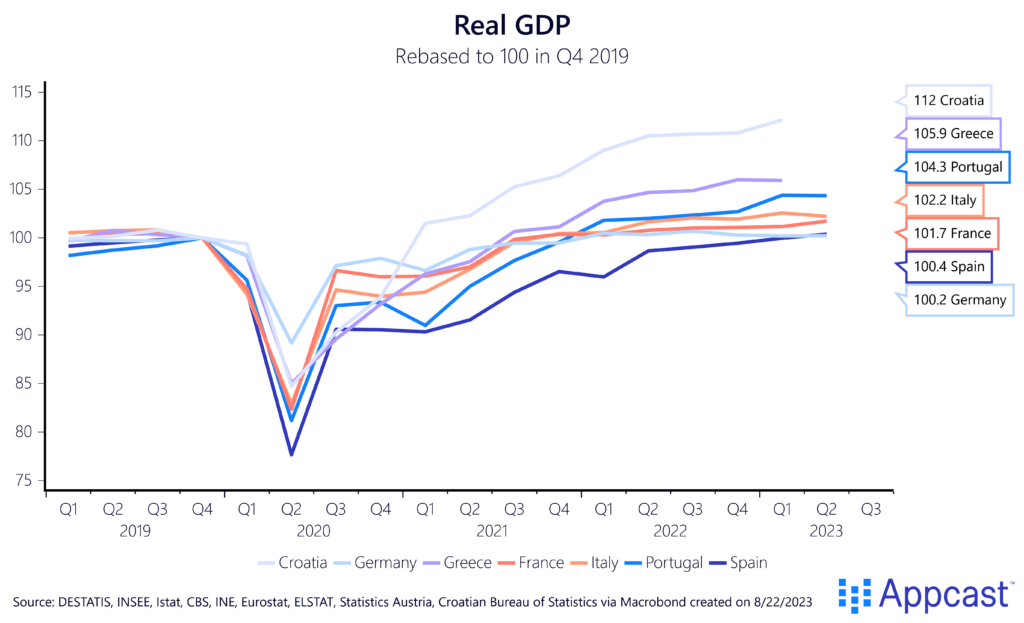
Moreover, International Monetary Fund (IMF) projections forecast that Southern Europe will continue to outperform the North in the coming years. Greece is expected to grow above 2% this year. Spain, Portugal, and France will see more than 1% growth this year and next.
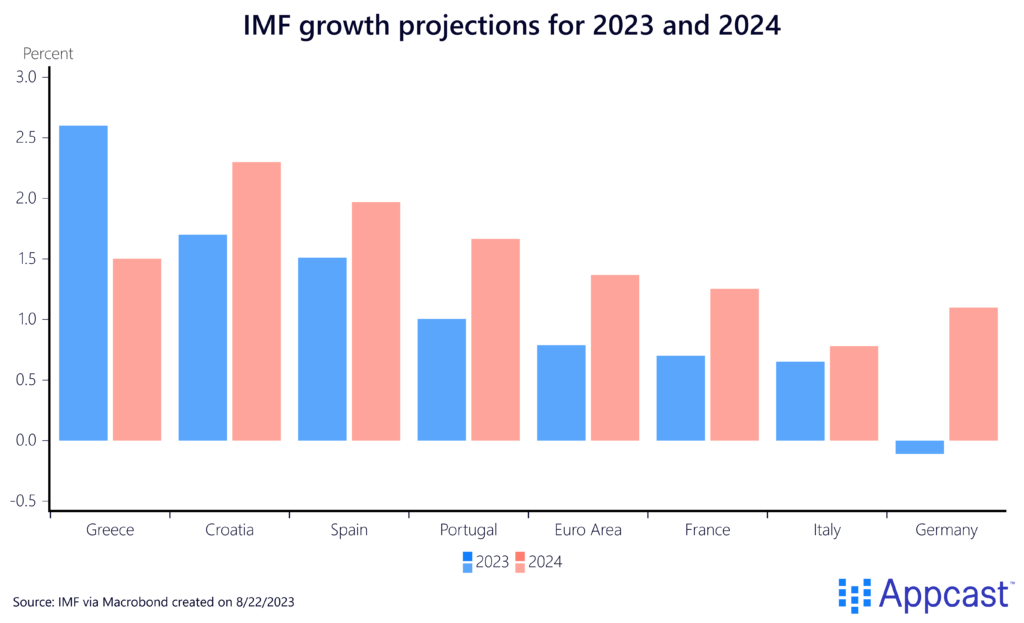
Along with a faster recovery in economic output, Southern European countries are also leading the Eurozone in terms of employment growth. Total employment is up by almost 8% in Greece and 6% in France and Spain. Meanwhile, German employment is only up by a little over 1% since the end of 2019.
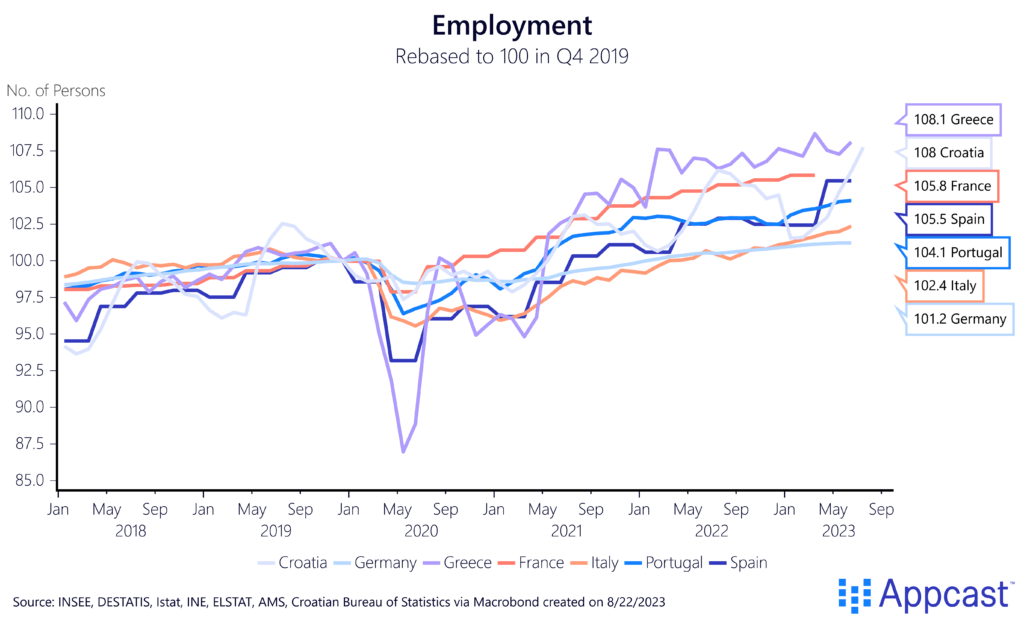
Germany’s private sector has seen zero job growth
The poor German performance is even worse than it looks since Germany has not created a single private sector job on net since late 2019. In fact, private sector employment was still down by about 84,000 and all job growth has been in the public sector, which added about 630,000 jobs since then.
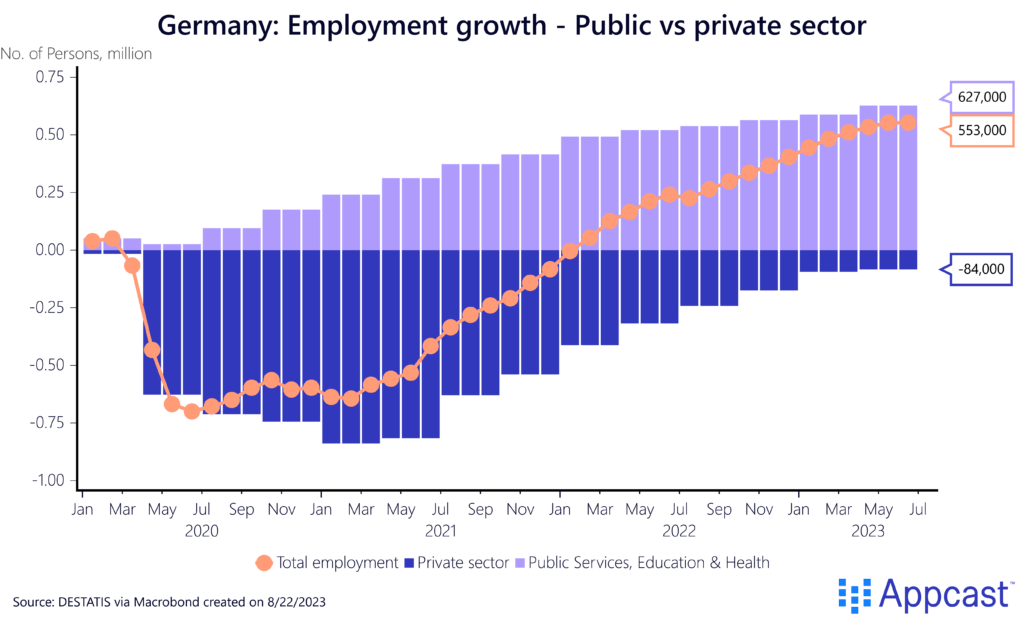
The Eurozone has added some five million jobs, less than two million of which are public sector jobs. Germany has been responsible for 0% growth in Eurozone private sector employment and more than 25% growth in public sector employment since Q1 2020.
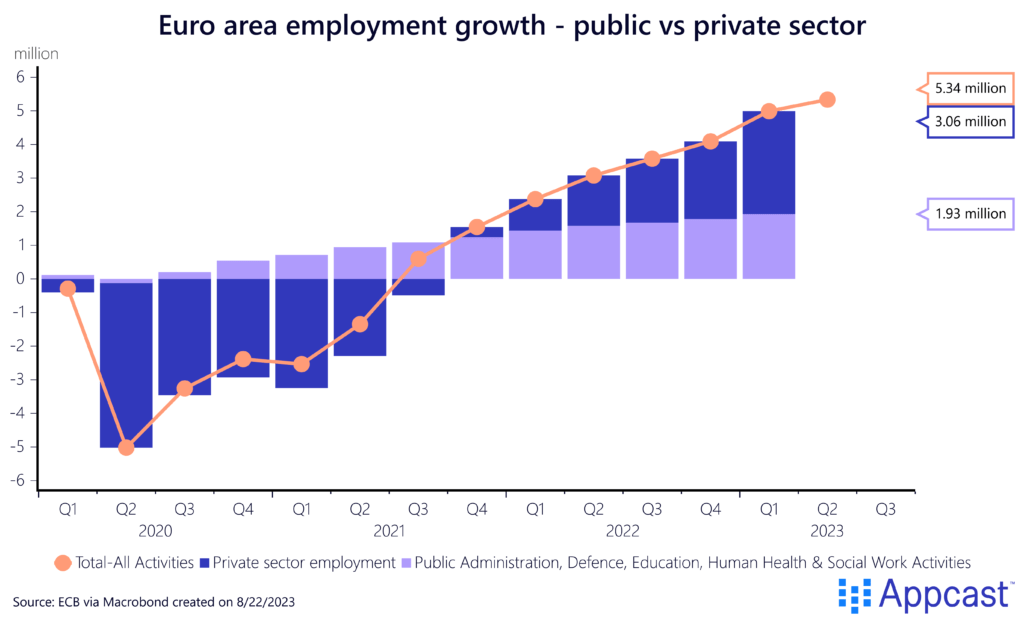
France and Spain are leading the job growth recovery in the Eurozone
Germany being the largest Eurozone economy – its GDP is a little under 30% of total Eurozone economic output – begs the question of where the private sector job growth is coming from as its own labor market flounders.
There are two countries that are clear overperformers – France and Spain. Together the two economies have created about two-thirds of all private sector employment since early 2020.
France has added close to 1.3 million jobs since the beginning of the pandemic, 95% of which are in the private sector.
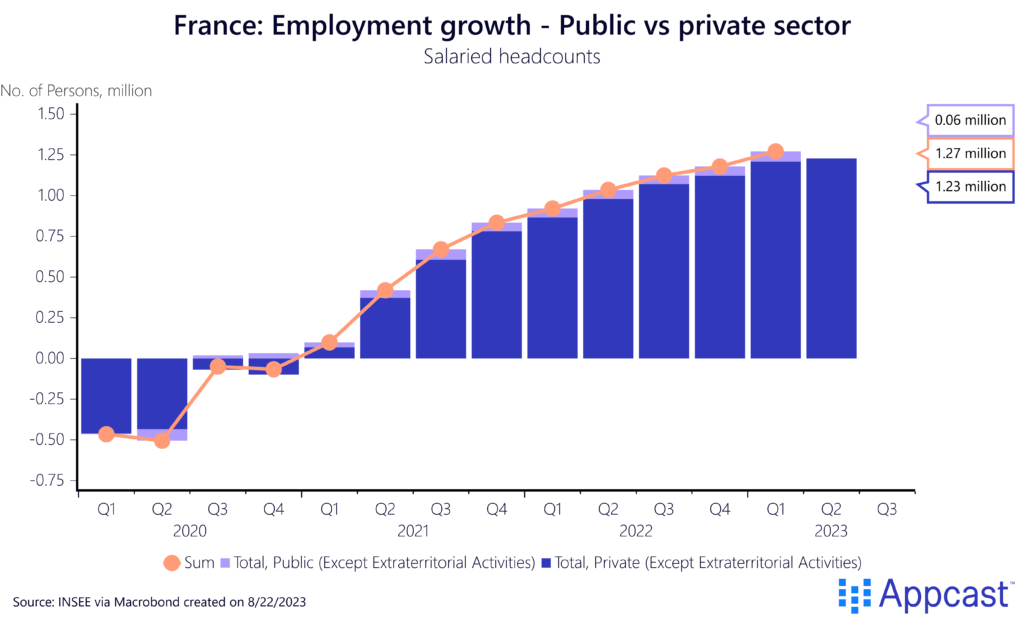
Relative to the size of its economy and labor market, Spain has seen even faster job growth with more than a million new jobs created, 740,000 of which are in the private sector.
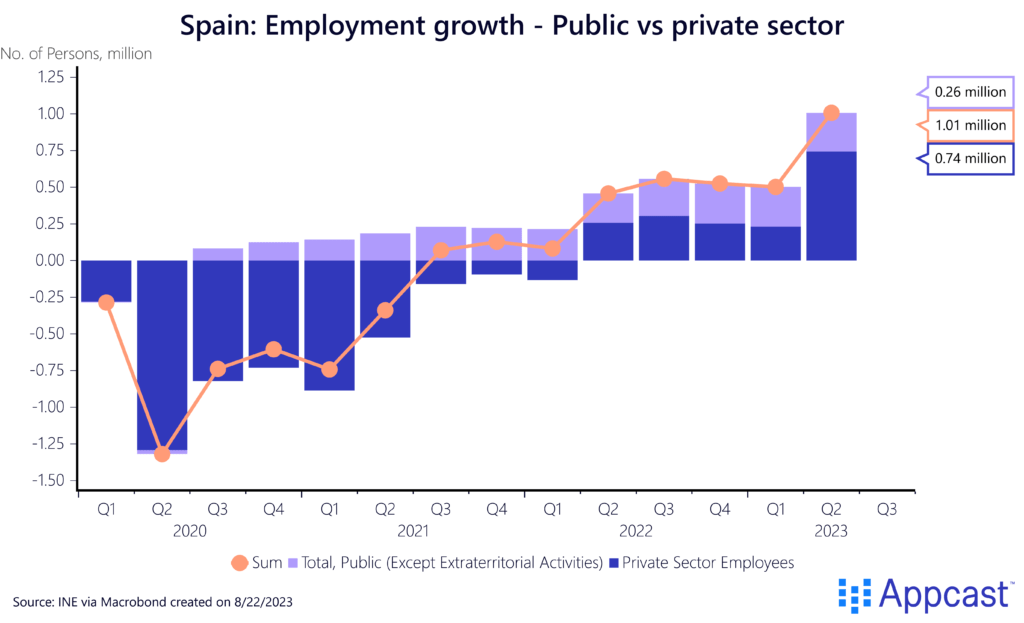
One should not forget that it is somewhat easier for Southern European economies to boost employment due to Germany’s rapidly aging population. Germany’s employment-to-population ratio in the age group 25 to 64 is already several percentage points above OECD average. Southern European countries, meanwhile, are mostly below (France is at the average). While Germany might find it more difficult to boost labor supply at the extensive margin (total number of workers), it could try boost supply at the intensive margin instead (total hours worked), given that German workers have on average some of the lowest annual working hours in the world.
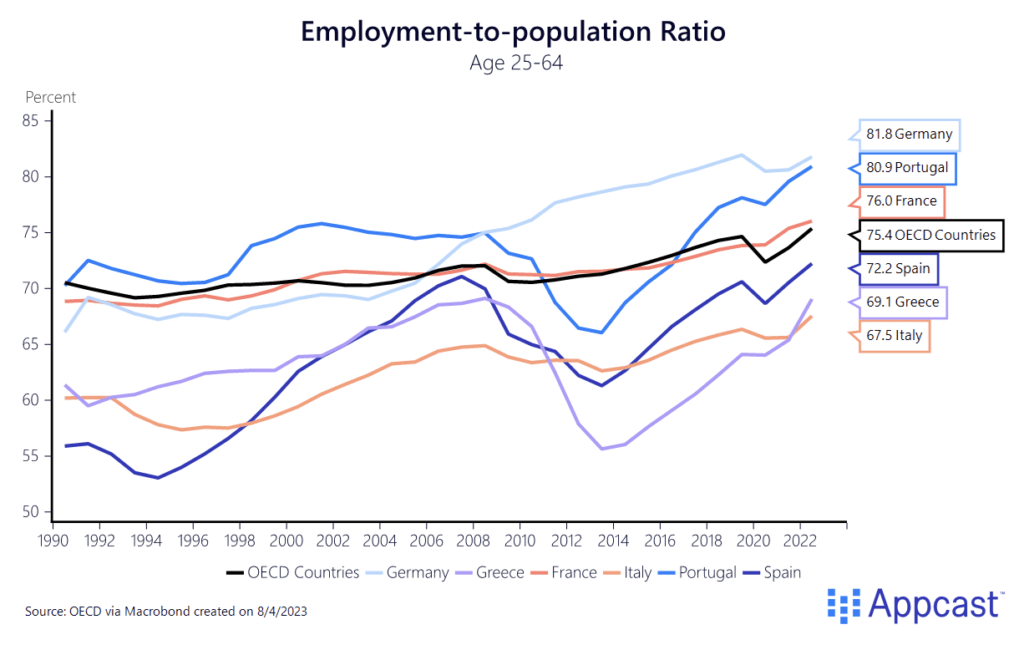
Tourism boom
One reason why Southern Europe is booming is that tourism is finally picking up again. The tourism sector was close to 12% of Spain’s GDP just before the pandemic – that figure is similar for other Southern European countries – and Spain registered about 80 million arrivals.
While the pandemic led to a complete cratering of the global tourism industry in 2020 and early 2021, the sector is now recovering strongly. 2022 was still a little weaker than in 2019, but total arrivals this year will most likely exceed pre-pandemic levels.
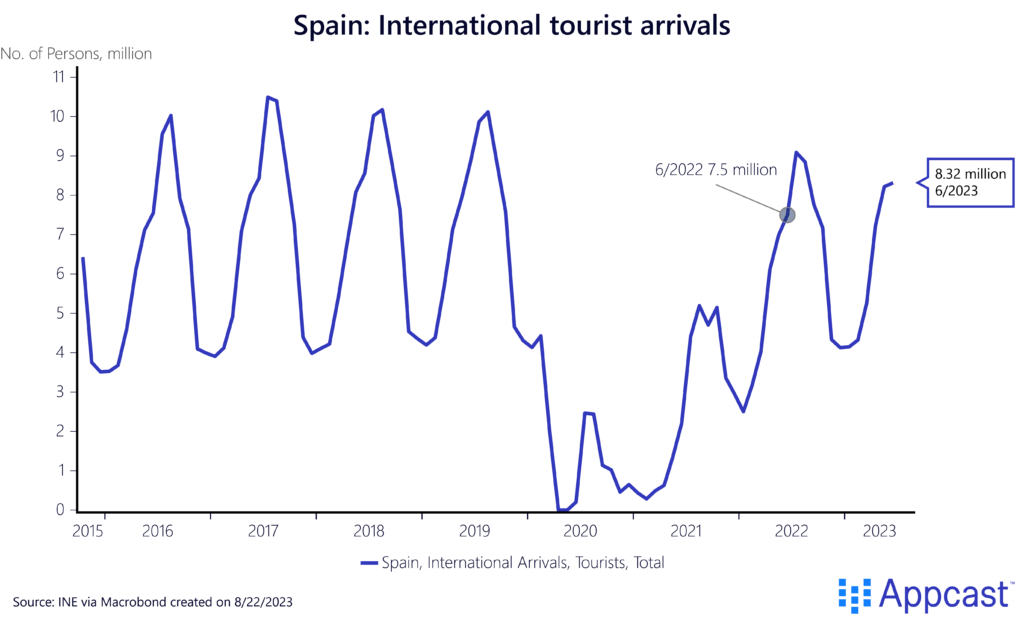
And local service providers in the food and accommodation sector can take advantage of the travel boom to Southern Europe. Hotel prices in Spain are now some 30% higher than in 2019. Food and restaurant prices have also increased. The average daily tourist expenditure is up by a little under 20% compared to pre-pandemic levels.
After the dearth of travel due to the pandemic, Southern Europe is now being given an economic boost by Northern Europeans’ desire to enjoy good wine and food in warmer climates.
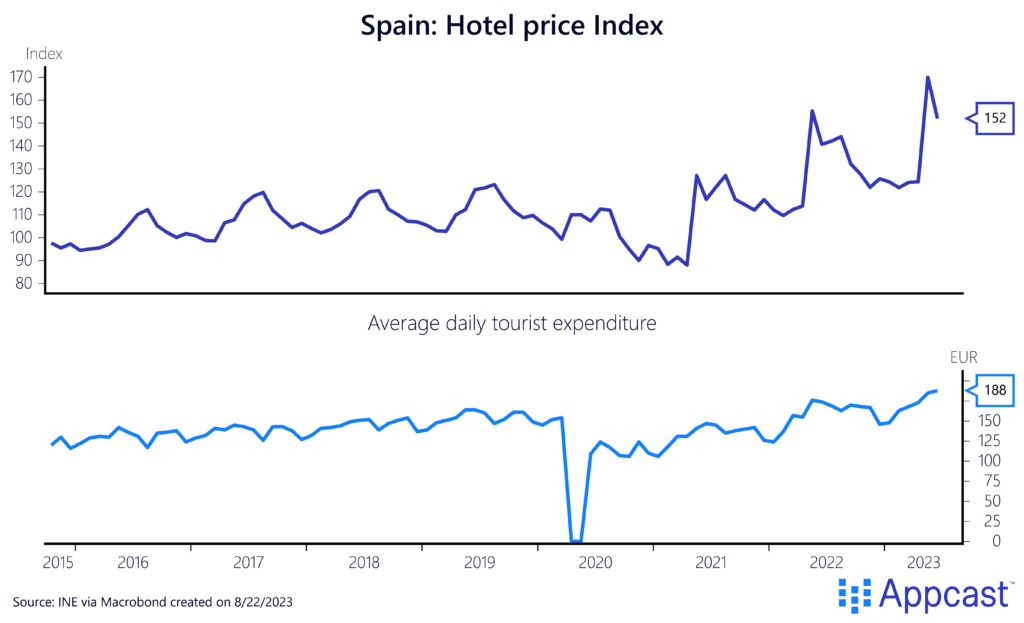
Conclusion
After years of stagnation in the aftermath of the Eurozone crisis, the tables have turned, and Southern Europe is now outperforming the rest of the Eurozone. This is true both for output as well as job growth. The tourism boom to Southern Europe this year is supporting the local economies. Total private sector job growth has also outperformed. France and Spain alone are responsible for about two-thirds of private sector employment growth in the Eurozone since Q1 2020. Forecasters project that Southern European countries will continue to grow faster than Germany this year and next.







